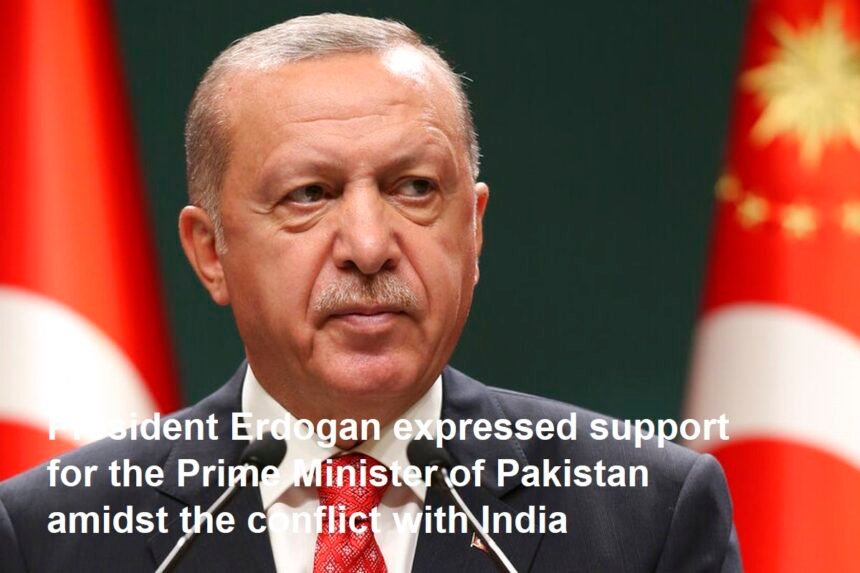In a significant diplomatic gesture, Turkish President Recep Tayyip Erdogan reached out to Pakistani Prime Minister Shehbaz Sharif through a phone call to express Turkey’s support and solidarity amid the escalating tensions between Pakistan and India. This communication underscores Turkey’s concern over the deteriorating situation in South Asia and its commitment to fostering peace and stability in the region.
Context of the Rising Tensions
The recent escalation between Pakistan and India has heightened regional and international concerns. The two neighboring countries, which have a long history of conflict primarily centered around the Kashmir region, have witnessed increased military confrontations, cross-border skirmishes, and diplomatic strains. The situation has raised fears of a broader conflict that could destabilize South Asia and impact global security.
Erdogan’s Expression of Support
During the phone call, President Erdogan conveyed Turkey’s unwavering support for Pakistan in navigating the current crisis. He emphasized the importance of dialogue, restraint, and peaceful resolution to prevent further escalation. Erdogan’s message highlighted Turkey’s recognition of Pakistan’s sovereignty and territorial integrity, reinforcing the longstanding ties between the two Muslim-majority nations.
Erdogan also assured Prime Minister Sharif that Turkey stands ready to assist Pakistan diplomatically and politically on international platforms. This support is seen as a reaffirmation of Turkey’s role as a key player in the Muslim world and its commitment to solidarity among Islamic countries.
Strengthening Bilateral Relations
The call between Erdogan and Sharif also served to strengthen the bilateral relationship between Turkey and Pakistan. Both leaders discussed avenues for enhancing cooperation in various sectors, including trade, defense, and cultural exchange. The conversation reflected a mutual desire to deepen strategic ties and collaborate on regional security issues.
Turkey and Pakistan have historically maintained close relations, often supporting each other on international matters. Erdogan’s outreach during this critical period reinforces this partnership and signals a united front in addressing shared challenges.
Regional and International Implications
Turkey’s expression of solidarity with Pakistan amid the India-Pakistan tensions carries significant regional and international implications. It highlights the complex web of alliances and interests in South Asia and the broader Muslim world. Erdogan’s support may influence diplomatic dynamics, encouraging other countries to engage constructively in de-escalation efforts.
The call also sends a message to India and the international community about Turkey’s stance on the conflict, advocating for peaceful dialogue and respect for sovereignty. It underscores the importance of multilateral engagement to resolve disputes and maintain regional stability.
Calls for Peace and Restraint
Both Erdogan and Sharif emphasized the need for restraint and dialogue to prevent the situation from spiraling into a larger conflict. They acknowledged the devastating consequences that armed confrontation could have on civilian populations and regional security.
The leaders called on all parties involved to prioritize diplomatic solutions and engage in meaningful negotiations. Their conversation reflects a shared commitment to peace and stability, aligning with broader international efforts to mediate the conflict.
Conclusion
Turkish President Recep Tayyip Erdogan’s phone call to Pakistani Prime Minister Shehbaz Sharif amid escalating tensions with India represents a crucial diplomatic move aimed at expressing solidarity and promoting peace. Erdogan’s support reinforces the strong ties between Turkey and Pakistan and highlights the importance of dialogue and restraint in resolving conflicts.
As the situation in South Asia remains volatile, such diplomatic engagements are vital in fostering understanding and preventing further escalation. Turkey’s role as a supportive ally to Pakistan underscores the interconnectedness of regional politics and the collective responsibility of nations to work towards stability and peace.









